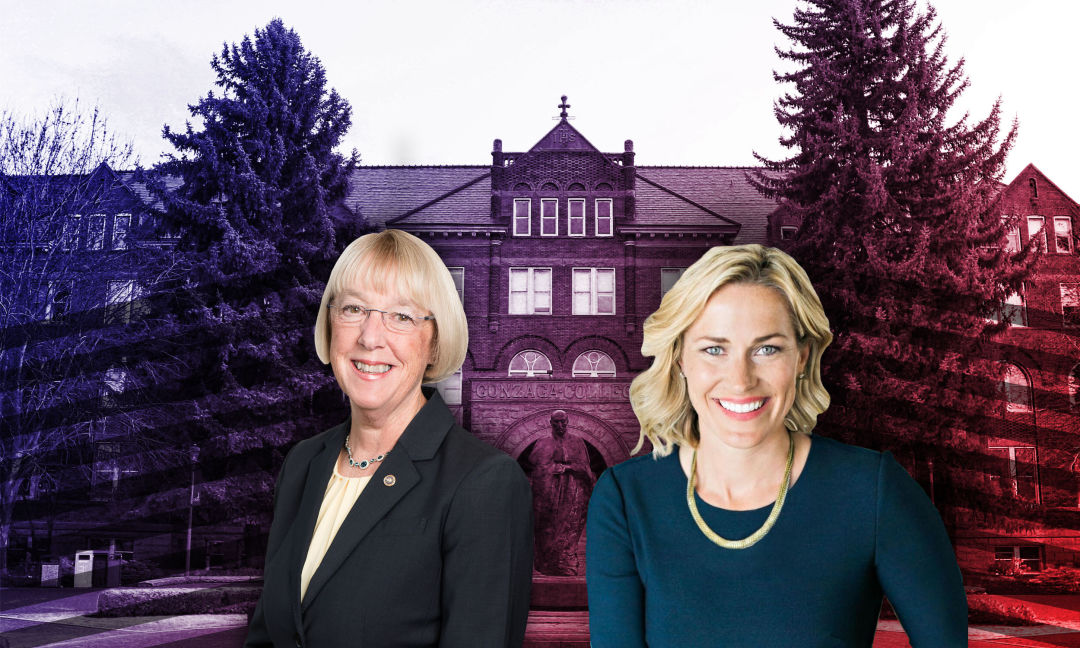This Is Seattle's Meta Election

After weeks of will-they-won't-they buildup, Democratic sen. Patty Murray and Republican Tiffany Smiley did, in fact, debate on Sunday night at Gonzaga University. And the first face-to-face arguments in one of Washington's most riveting midterm races were as heated as you would expect in our polarized political climate.
One of the more contentious exchanges came when moderator Laurel Demkovich of The Spokesman-Review asked about the findings of the January 6 committee. Murray described being locked down in her office at the Capitol with insurrectionists closing in. The five-term incumbent "realized, for the first time in my life, that our democracy doesn't happen just because you think it's there. Our democracy is something you have to fight for. We can never allow brute force to take over our votes or our voices." The senator called it a "critical issue in this election."
At first, Smiley responded by stressing that January 6 was "heartbreaking" to her and her husband, "who lost his eyesight fighting for democracy." She said she supports punishing the insurrectionists to "the full extent of...our law." Then she turned to Murray, addressing the implication of her opponent's remarks. "Do you believe that me and my family are a threat to democracy?"
Murray said she didn't think they were, but she posited that Smiley is "misconstruing about the intent of insurrectionists." Smiley is certainly raising some of the same questions as those who invaded the Capitol. In September, she turned down multiple opportunities to say Joe Biden was legitimately elected during a CNN interview, and until recently, her campaign website has amplified baseless claims of voter fraud.
Even if we're to believe Smiley has softened her stance in a tightening race, or agree with her critique of Murray's election concerns in 2004, her party's current election denial means a vote for her undermines the meaning of the vote itself.
And that's not the only meta choice Seattle must make in this election. Voters will weigh in on whether the city should adopt ranked-choice or approval voting in future mayor, city council, and city attorney primaries. A two-pronged ballot measure allows voters to select their preference after indicating whether or not they want the current voting system to stick.
Whichever voting method wins, the Secretary of State's office will still certify the results. Democrat Steve Hobbs and nonpartisan candidate Julie Anderson are in a close race to lead a department that must increasingly monitor threats to our ballots.
Let's hope that position feels less weighty in the future.




